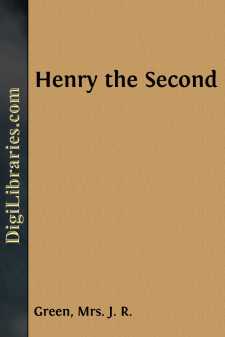Categories
- Antiques & Collectibles 13
- Architecture 36
- Art 48
- Bibles 22
- Biography & Autobiography 816
- Body, Mind & Spirit 145
- Business & Economics 28
- Children's Books 18
- Children's Fiction 14
- Computers 4
- Cooking 94
- Crafts & Hobbies 4
- Drama 346
- Education 58
- Family & Relationships 59
- Fiction 11831
- Foreign Language Study 3
- Games 19
- Gardening 17
- Health & Fitness 34
- History 1378
- House & Home 1
- Humor 147
- Juvenile Fiction 1873
- Juvenile Nonfiction 202
- Language Arts & Disciplines 89
- Law 16
- Literary Collections 686
- Literary Criticism 179
- Mathematics 13
- Medical 41
- Music 40
- Nature 179
- Non-Classifiable 1768
- Performing Arts 7
- Periodicals 1453
- Philosophy 66
- Photography 2
- Poetry 897
- Political Science 203
- Psychology 45
- Reference 154
- Religion 516
- Science 126
- Self-Help 86
- Social Science 82
- Sports & Recreation 34
- Study Aids 3
- Technology & Engineering 59
- Transportation 23
- Travel 463
- True Crime 29
Our website is made possible by displaying online advertisements to our visitors.
Please consider supporting us by disabling your ad blocker.
Henry the Second
by: Mrs. J. R. Green
Description:
Excerpt
CHAPTER I
HENRY PLANTAGENET
The history of the English people would have been a great and a noble history whatever king had ruled over the land seven hundred years ago. But the history as we know it, and the mode of government which has actually grown up among us is in fact due to the genius of the great king by whose will England was guided from 1154 to 1189. He was a foreign king who never spoke the English tongue, who lived and moved for the most part in a foreign camp, surrounded with a motley host of Brabancons and hirelings; and who in intervals snatched from foreign wars hurried for a few months to his island-kingdom to carry out a policy which took little heed of the great moral forces that were at work among the people. It was under the rule of a foreigner such as this, however, that the races of conquerors and conquered in England first learnt to feel that they were one. It was by his power that England, Scotland, and Ireland were brought to some vague acknowledgment of a common suzerain lord, and the foundations laid of the United Kingdom of Great Britain and Ireland. It was he who abolished feudalism as a system of government, and left it little more than a system of land-tenure. It was he who defined the relations established between Church and State, and decreed that in England churchman as well as baron was to be held under the Common law. It was he who preserved the traditions of self-government which had been handed down in borough and shire-moot from the earliest times of English history. His reforms established the judicial system whose main outlines have been preserved to our own day. It was through his "Constitutions" and his "Assizes" that it came to pass that over all the world the English-speaking races are governed by English and not by Roman law. It was by his genius for government that the servants of the royal household became transformed into Ministers of State. It was he who gave England a foreign policy which decided our continental relations for seven hundred years. The impress which the personality of Henry II. left upon his time meets us wherever we turn. The more clearly we understand his work, the more enduring does his influence display itself even upon the political conflicts and political action of our own days.
For seventy years three Norman kings had held England in subjection William the Conqueror, using his double position as conqueror and king, had established a royal authority unknown in any other feudal country William Rufus, poorer than his father when the hoard captured at Winchester and the plunder of the Conquest were spent, and urged alike by his necessities and his greed, laid the foundation of an organized system of finance. Henry I., after his overthrow of the baronage, found his absolute power only limited by the fact that there was no machinery sufficient to put in exercise his boundless personal power; and for its support he built up his wonderful administrative system. There no longer existed any constitutional check on the royal authority....


